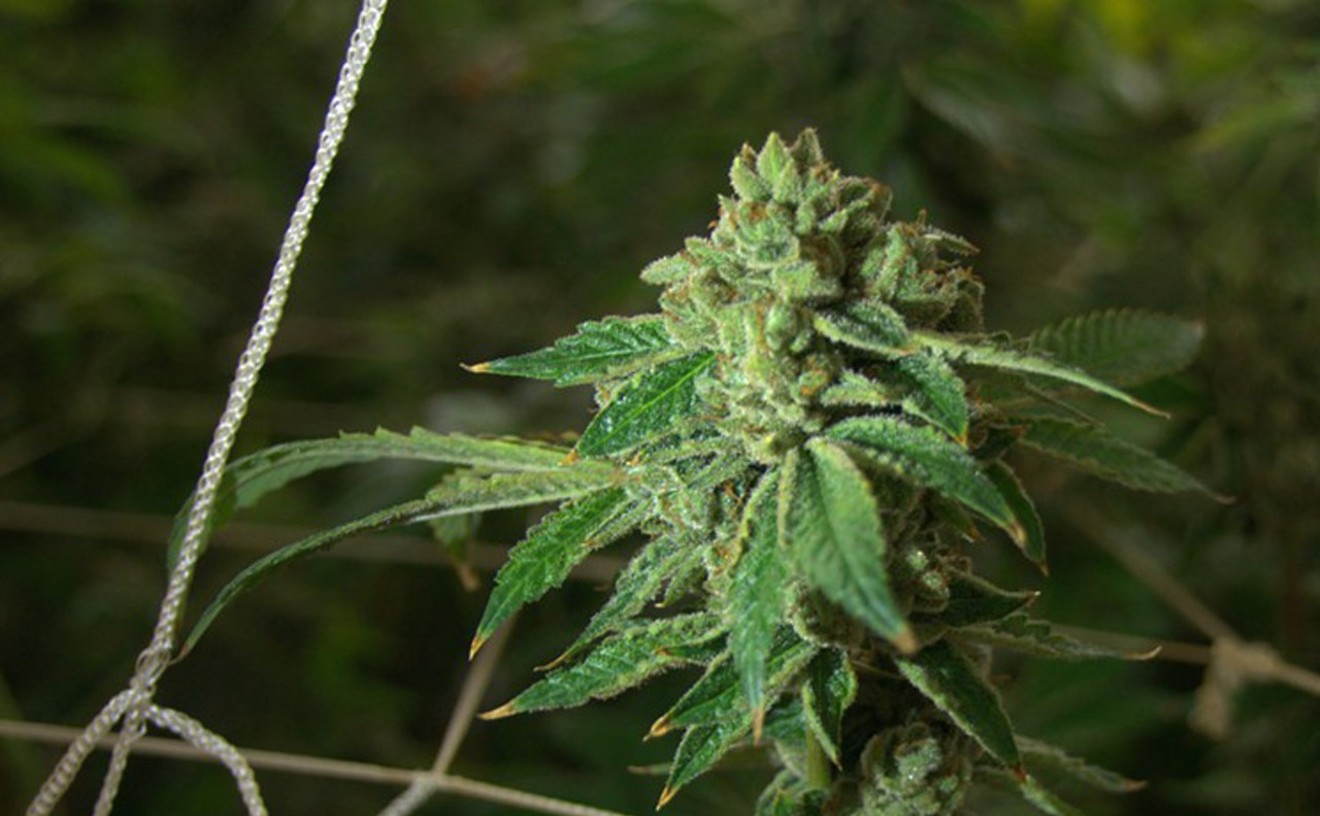Correction:
(March 9, 2015)
In the story below, we incorrectly state the charges to which Matthew Bovee pleaded guilty. Bovee pleaded guilty to injury to a child, a third-degree felony.
Mark smashed his ear to the phone. Even in the crowded cafeteria, he didn't want anyone else to hear what his mom was asking. Phone calls between parents and campers weren't allowed, but Mark had sent a letter to his mom saying he wanted to come home and she'd told Blake Smith, the owner of Camp La Junta, that she would speak to her son or he would be withdrawn immediately. On the other end of the line, Kelly tried to make out Mark's voice over the clatter in the Camp La Junta cafeteria. She was across the state in Houston, but she was ready to get in the car — she wouldn't even stop to pack a bag — if her 11-year-old son confirmed her suspicion.
"Don't say anything but yes or no," she said. "Just tell me, do you want to come home? Has that counselor been touching you? Are you OK?"
She rattled off questions while in the back of her mind the thought pulsed, "Please don't let it be true. He wasn't abused. He was only homesick like they said."
"No. I was just homesick," he said quickly. "Everything's OK, Mom. I want to stay."
Kelly felt relief rush through her like a tranquilizer dart. His letter home talked about shower checks and how camp wasn't fun anymore. "Please do something," the last line read.
"I have to go, Mom. I need to get off the phone," Mark said. Maybe he said it too fast. Maybe she should have listened harder, caught the blade of fear in his voice. She had no idea that Smith, the owner of the camp, who stood to lose a lot if Mark was being abused, was standing on one side of him.
Counselor Matthew Bovee stood on the other side of Mark. Mark knew the counselor had a knife in his pocket. Mark knew Bovee was zeroing in on every word he said. Mark was sure the man would reach out and stab him right there if he told his mother what Bovee was doing to him. So he told his mom he was fine.
In July 2009 they were a normal family. Kelly was a stay-at-home mom devoted to her children and to running their spacious, quietly expensive home in one of the wealthiest neighborhoods in Houston. Her husband, George, had a good job in a technical field, and they had the means to provide excellent private-school educations for their children. Mark, the oldest, was a bright, happy child, a boy who got good grades and loved playing with his friends.
Kelly and George had never done the summer camp thing as kids, but other parents in their circle were sending their boys to Camp La Junta in Hunt, just outside Kerrville, and Kelly and George decided Mark should go, too. The first year had been wonderful. Mark hadn't written a word home, but he'd come bouncing out to the car when they arrived to pick him up, full of stories about horseback riding and swimming and hanging out with all his friends. Kelly pulled her car past the well-manicured entrance to Camp La Junta the second year expecting to see her son come running out with a happy grin on his face.
All the kids were gathered at the front, waving to their parents like something out of a brochure. Mark sprinted to the car and darted into the backseat. A high-pitched animal moan filled the car. Looking over her shoulder, Kelly realized it was Mark.
Ten months later Mark found the courage to tell someone he had been sexually abused by counselor Bovee. Mark's family has filed a civil suit against Smith and the camp, contending that Smith was negligent and could have prevented the abuse. They also believe Smith spread rumors about Mark and his family to try to minimize the implications of a child being sexually abused under his care. Smith and his lawyer, Ken Adams, have declined to comment for this story. (Mark's name and the names of members of his family have been changed for this article.)
There are dozens of youth summer camps across Texas. Parents send their children to these camps expecting they'll have safe, memorable summers, never dreaming they could be sending their children into the path of sexual predators.
While the Texas Department of State Health Services — the government entity that oversees all licensed youth camps in Texas — will check to see if the food is properly prepared and the bathrooms are properly stocked with antibacterial soap, when it comes to child sexual abuse, you're pretty much on your own.
Kelly and George chose Camp La Junta because it had received excellent reviews and because it was the camp that Mark's school friends attended. There are about 24 camps in Kerr County, right in the heart of the Hill Country, a bucolic place of rolling terrain where the grass, the Spanish oaks and the cypress trees are a concentrated, vibrant green, but there hadn't been much in the way of industry or money in those parts until the youth camps started popping up, most of them in the late 1920s.
It's a lucrative business, built on the idea of clean, safe summer fun. The youth camp world is very tight-knit, a place where reputation is everything and even the hint of a scandal can tarnish a camp's name and send parents running for the door. "We're just like any business. We live and die by our reputation," longtime Texas camp director Danny Dawdy said. Dawdy, the executive director of Highland Lakes Camp & Conference Center, a Baptist camp organization near Austin, argued that this means camps have a motivation to take every precaution to prevent abuse, making sure counselors are never alone with campers and that everyone is trained to notice red flags from other counselors.
From May to the end of July, families bring their children from the busy, smoggy cities in Texas and elsewhere around the country to spend a healthy summer here. It isn't a cheap endeavor — Mark's 10-day stay cost more than $2,000. The camps bring more than $24 million to the Kerr County economy, according to a 2007 study by the Kerrville Convention & Visitors Bureau. That's not counting the spillover from spending on meals, hotels and shopping by parents when they come to drop off and pick up their children. It's high tide for the Kerr County tourism business.
There's evidence this may play a part in local legal decisions, as in the lawsuit involving nearby Camp Mystic. The Kerr County jury in that case ruled in favor of the owner, Richard Eastland, despite the evidence the state district judge believed clearly showed that Eastland had been skimming money off the rest of his family for years. The judge ordered a new trial, and the case was appealed all the way to the Texas Supreme Court before the family finally settled out of court.
Bob Wynne, the Houston lawyer representing Mark's family in a civil suit filed against Smith, Camp La Junta and CLF Management Systems LLC, a Texas limited liability company registered to Smith, was concerned enough about getting a fair trial that he made sure to file in Harris County instead of Kerr County. The suit, claiming defamation and negligence, is set to be tried in Harris County beginning next fall.
In 2009, Bovee was a 20-year-old with a mop of blond hair hanging over heavy-lidded blue eyes. He was small and wiry and looked like a surfer, but he had a rigid quality that seemed a little harsh to Kelly. He had grown up near Lincoln, Nebraska, and told parents he was a former Marine and had gone to school on a wrestling scholarship. Kelly thought he came across as stern — she and the other parents immediately nicknamed him "The Marine" — but maybe that was good for kids.
Bovee didn't get along well with the other counselors, but the boys in his cabin thought he was cool because he had a knife he always carried in his pocket — sometimes he'd take it out and pretend to stab one of the kids. They'd heard him talking to another counselor about the gun he said he kept in his car. He taught the Indian hour, and he said he could show them a war dance he'd taught at one of the neighboring camps.
Bovee was strict about showers. The counselors conducted shower checks to make sure the boys actually washed. The other counselors would lean over and sniff a boy's head for the presence of shampoo, but Bovee stood just outside the shower door to inspect each kid as he walked out. Bovee would smell the boys' hair, then put his hands under their arms and behind their knees.
Mark came back a different person. He refused to get off the couch, and fought with his siblings and all his friends. He only picked at his food during meals, and soon he was rail-thin with dark shadows under his eyes. He couldn't always sleep at night, and when he did he was plagued by nightmares and woke up in the dark convinced Bovee was there waiting for him and preparing to kill him and his entire family. For months he whispered the truth only in the ear of the family dog, late at night after he woke up from another bad dream.
His parents were so concerned, they found him a therapist. He was in her office playing a card game when he finally told her what had happened. The therapist called Kelly in from the waiting room. Mark had something to tell her, she said.
Mark eventually told the therapist — and later a forensic interviewer — that Bovee started by putting his hands behind Mark's knees, but then he began sliding his hand further up underneath the towel Mark was wrapped in after he finished washing. One night, he made Mark take six showers. Bovee checked him after each shower, sliding his hands over Mark's butt and touching and pulling on his penis. Once he slid a finger into Mark's anus. Bovee would look the boy in the eye and smile while he did these things to him.
Sitting in the therapist's office almost a year later, Mark told his mom what had happened at camp. Kelly listened to him and tears ran down her face, but she'd known it all along, she realized. It was right there in front of her, but she hadn't wanted to see it, had willed it not to be true.
"I should have come to pick you up. I'm sorry. I feel like I failed you," she said.
Mark dropped his head and looked away.
"You did," he said.
That same summer, Camp Stewart, one of the oldest camps in the area, located down the road from La Junta, had a case of abuse. Counselor Scott Zirus was charged with and eventually convicted of sexual abuse. When the story broke, Smith sent an email out to all Camp La Junta parents with the point of the message in bold letters: "Camp La Junta is NOT the camp involved."
Smith's letters to parents took on a different tone when he was writing about his own camp after police started investigating Bovee in May 2010. First the letters went to Mark's parents and to the parents of everyone else in Cabin 6, reassuring them in soothing language that he had everything under control. In every letter sent out about Bovee before his conviction, Smith wrote that the camp stood firmly behind the victim, but he usually noted that the abuse claim was just an accusation or that Bovee was maintaining his innocence.
After Bovee was arrested in fall 2010, Smith sent out a letter to every parent of a child who'd had Bovee as a counselor, including Mark's parents, declaring that after a thorough investigation, he was sure their son was not the boy who had been molested. The lawyer and Mark's parents say Smith never sent a letter informing parents that Bovee was convicted of endangerment to a child in a deal with the assistant district attorney. Bovee was required to abide by sex-offender rules — no contact with children and no alcohol, firearms, pornography or unmonitored access to a computer — and would be on probation for 10 years, but he would never have to register as a sex offender.
Sexual abuse of a child can shape much of how that child grows up and sees the world, Megan Mooney, a psychologist who specializes in this type of trauma at the DePelchin Children's Center in Houston, said. An abuser will start out by grooming a child, doing things to earn the child's trust and touching him or her in increasingly inappropriate ways as the predator closes in. "The special attention often feels good, but when it crosses that boundary over into sexually explicit behavior, they can get confused," Mooney said. "Children's brains aren't designed to understand that."
According to Mooney, the effects of abuse are wide-ranging, depending on the severity of the abuse and how long it lasted, with many victims blaming themselves and believing there was something they did that made the abuse happen. "Unfortunately, sexual abuse is often perpetrated by someone a child knows. That can make it even more devastating if it was an adult that was supposed to be someone who they knew and trusted and who was supposed to care for them," Mooney said. The immediate aftermath of abuse can show up in behavior, changes in how victims interact with friends, in how they do in school, she said. They might show a lot of anxiety and fear and start having nightmares, she noted. A trigger in the memory — specific settings, sounds, smells, someone who looks like the abuser — can leave victims panicked and watchful, she said. "They become very worried about future relationships and about trusting people in the future, because someone they were supposed to be able to trust abused them."
This can also persist through the years as victims mature and develop. "We always try and prepare kids and teens and their parents to watch out for coming developmental stages and further anxieties," Mooney said. "It can be difficult to form the levels of emotional and sexual intimacy. Some kids are extraordinarily afraid and fearful, while others are too free."
People can get past it, Mooney said. In those first days, it's key that when the child speaks out about abuse, people believe him or her. "Someone has done something horrible to this child, so they need to feel loved and supported and believed," she said. Support and connections that are healthy with family and friends will do a lot to help counter the effects of abuse, she said. "People can get past sexual abuse, and the wonderful thing about children is they are very resilient, but it takes work," Mooney said.
That was what John, a Houston man, was worrying about just after he learned his son had been abused in 2004 at Camp Balcones Springs in Marble Falls. It was the final day of camp, and all the children and their parents were there for the closing ceremonies, held in a field. The sun glittered down, and the light was so sharp and clear it hurt John's eyes. He looked around at all the families and wondered at the odds that the abuse had happened to his son. Feeling helpless, he started looking for something to do about it.
The criminal case went to trial, though it had to be retried in a different county after the jury deadlocked. Once John knew the counselor was safely in prison, he started looking at the law. The concept of laws protecting children from sexual abuse at all is quite new — it's been around only since the 1970s. However, John learned there was almost no legislation governing summer camps in Texas or most other states. The Texas Department of State Health Services oversees the camps, and at the time that meant making sure they followed health codes so children wouldn't catch diseases. But there was nothing about sexual abuse in the camps, or even anything about training counselors to watch for the red flags that could indicate a predator in their midst.
He kept his name out of it to protect his son, but John (not his real name) lobbied and testified before the state legislature in support of such a law. After he'd spent four years meeting with politicians and negotiating with youth camp lobbyists in Austin, a law was passed. It wasn't much — counselors are now required to take a class and pass a 25-question test on appropriate and inappropriate interactions between counselors and campers. It's a relatively weak piece of legislation, but it makes Texas one of only a few states that have any laws at all covering summer camps.
But even the training isn't a surefire guard against abuse, said Britt Darwin-Looney, vice president of youth development services with Praesidium, a Dallas-based company that specializes in training organizations to guard against abuse. Summer camps appeal to predators because working at them can be the equivalent of a wolf being asked to guard the flock. If they're young, they're less likely to have a record that will come up in a background check, she said. There's no way guaranteed to keep them out, but training counselors to speak up when they see something and preventing situations in which a camper is alone with a counselor can help, she said. "It's better to report a creepy feeling about a counselor than to be sitting across from someone asking you why you said nothing," she said.
From the moment Mark's family reported the abuse, they started living a double life. Kelly was boiling with anger. Blake Smith had assured her repeatedly that there was nothing to the letter Mark had sent home, and she and her husband believed him. She pulled out the letter and read it over night after night. "Please do something," the last line read. She couldn't change what had happened, but she could make sure justice was served.
Rumors started circulating among the parents. Kelly got very good at keeping a neutral expression on her face when a mother would tell her that she had it on good authority from Smith that there was nothing to the allegations of abuse. "I made a point of never lying, but I would just nod and tell them they might want to get their child checked out anyway," she says, remembering. "I would say things like, 'I just pray for that little boy, whoever he is,'" she said. Playing at his friends' houses, Mark overheard parents talking about the case, assuring each other that the child who had accused Bovee was a liar with emotional problems. He stopped hanging out with most of his camp friends.
Watching her son struggle to cope with what he'd been through, Kelly promised herself she would make things right. She had started doing research on Bovee, trying to get an idea of who the man was who had changed her family. Now she began digging into his past. Using the Freedom of Information Act, she obtained case files and court documents, and then she went even further, making calls across Texas and the rest of the country and sifting through social media to try to put the man together.
He was from a little town in Nebraska. That much was true, but almost everything else — his time as a Marine, the full scholarship for wrestling to the University of Nebraska — was a lie. Kelly learned he'd been fired in 2008 from Camp Rio Vista, located just five miles down the road from Camp La Junta.
Kelly put together a binder six inches thick, carefully organizing it with her notes, photos, printouts and everything else she could find. She has pages and pages of information on Bovee. When she starts talking about what happened to Mark, she turns the pages with a sharp flip, anger filling her normally gentle voice.
As the investigation unfolded, Bovee was indicted and charged with sexual assault of a child and endangerment to a child. As Kelly pieced together the picture, she realized that Smith had taken Bovee at face value. In fact, he had hired and vouched for Bovee while he was little more than a stranger. When Smith told her in July 2009 that Bovee was a senior counselor and a trusted member of the staff, he neglected to mention that he was considering letting Bovee out of his contract early because of his fights with other counselors and because Smith found out most of Bovee's backstory was a lie.
Although Smith told Kelly no one had reported any concerns about Bovee's shower checks, a counselor who worked with Bovee told police he had said something to Scott Fineske, the second-in-command at La Junta, questioning the shower checks. The counselor also mentioned that he'd noticed Bovee took four to six showers a day, so he and the other counselors figured that meant Bovee was masturbating.
When the case went to trial in May 2011 and it was Kelly's turn to testify, the then-assistant district attorney for Kerr County, Brad McCullouch, warned her not to run down the camp when she got on the stand, because Smith had a lot of friends on the jury, which never finished its work because a plea agreement was reached during its deliberations. Bovee, dressed in a too-big suit, wouldn't look at her while she testified, but Kelly glared at him every moment she was in the courtroom.
Mark faced Bovee in court, telling him he hadn't been destroyed and that Bovee should be a real man and confess about the other children he had hurt so they could be lucky enough to receive the treatment and help Mark had gotten. But Mark and his family are still working on recovering from this. It's important to his family and important to Mark that the truth come out. "This did happen, and it probably happened to other kids and the camp covered it up. They called [Mark] a liar and they covered it up," George said.
Bovee is in prison now — not because he was sentenced for sexually abusing an 11-year-old boy but because he simply couldn't stay off unmonitored computers or keep away from Facebook (where he was sending friend requests to children, including some of the boys from Cabin 6). He couldn't not drink alcohol or avoid firing a firearm. He refused to wear a monitoring device on his leg, and he was found to be living within 500 feet of a school. Bovee had moved to Travis County, but officials there were so frustrated with him that they handed responsibility back to Kerr County. Eventually, when the list of infractions grew long enough, Bovee was sent to prison for nine years. He is expected to be up for parole in April 2015.










